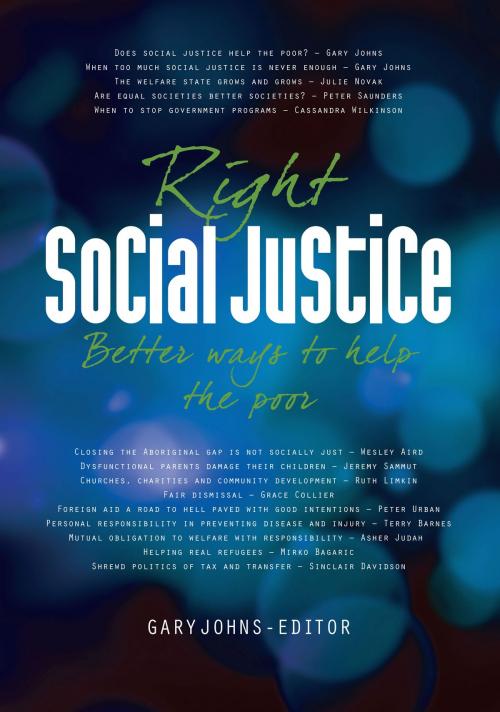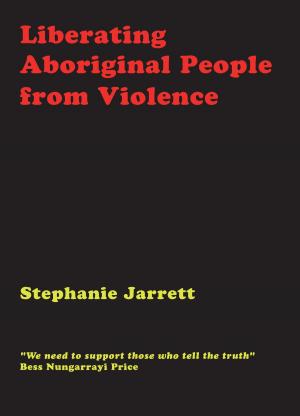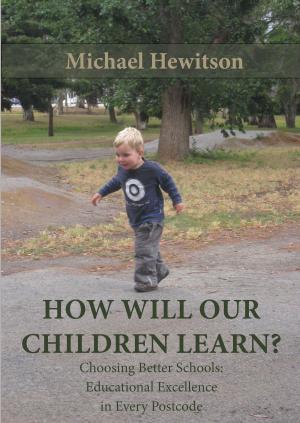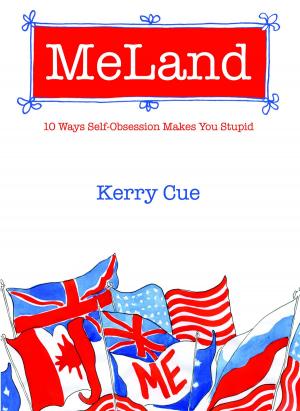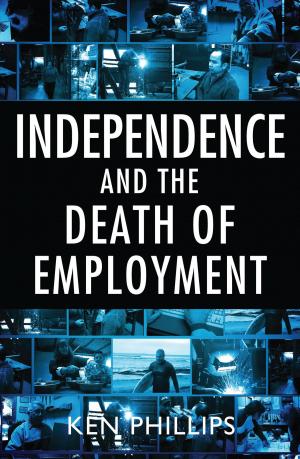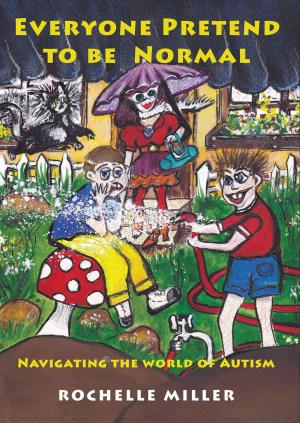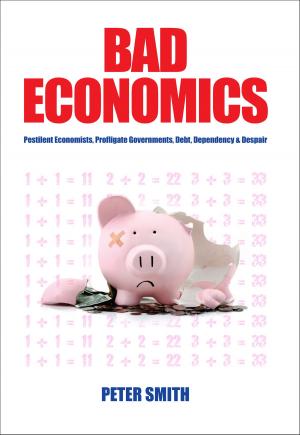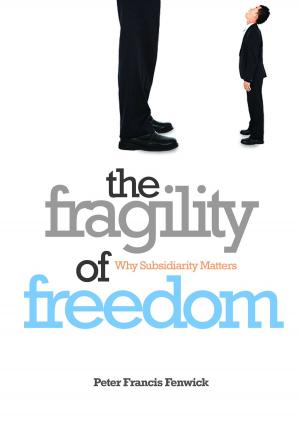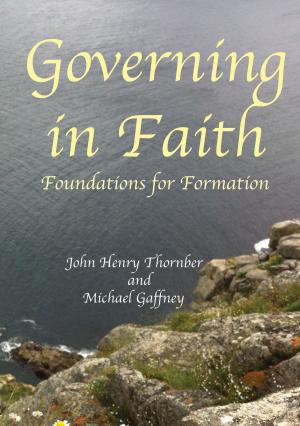Right Social Justice
Better ways to help the poor
Nonfiction, Social & Cultural Studies, Political Science, Politics, Social Services & Welfare, Government, Social Policy| Author: | ISBN: | 9781992168450 | |
| Publisher: | Connor Court | Publication: | April 26, 2013 |
| Imprint: | BookPOD | Language: | English |
| Author: | |
| ISBN: | 9781992168450 |
| Publisher: | Connor Court |
| Publication: | April 26, 2013 |
| Imprint: | BookPOD |
| Language: | English |
For decades, Social Justice has been trumpeted as the means of assisting the downtrodden. Rarely have any of its proponents proved that it is other than an egalitarian ideology, without an analytical base. Assisting the poor may be a good thing but only if programs to aid them are effective and only if others are not made poor in the process. Too often, either the policy prescription or the analyses of the social problem, or indeed both, are blinded by the ideology of social justice. The purpose of the book is to assist those wedded to the principles of social justice, of whom there are many, to understand that helping the poor is not straightforward. There are many counterintuitive schemes to help the poor; they have little to do with the right to income transfers. Indeed, most people have a non-egalitarian conception of fairness, based on merit and effort, with equality running a poor third. In these cases, social justice is seen as a form of insurance, not a right. Social justice often overplays its hand; this book is a chance to find better ways to help the poor. Chapters include; When too much social justice is never enough- Gary Johns, Dimensions of the welfare state - Julie Novak, Are equal societies better societies? - Peter Saunders, When to stop government programs - Cassandra Wilkinson, Aboriginal programs: closing the gap is not socially just Wesley Aird, Child protection: dysfunctional parents damage their children - Jeremy Sammut, Community development: churches and charities Ruth Limkin, Fair dismissal - Grace Collier, Foreign aid: road to hell filled with good intentions - Peter Urban, Preventable disease: whose responsibility? - Terry Barnes, Mutual obligation - Asher Judah, Helping the real refugees - Mirko Bagaric, Tax and transfer: shrewd politics - Sinclair Davidson. About the Author: Gary Johns served in the House of Representatives from 1987-1996 and was Special Minister of State and Assistant Minister for Industrial Relations from 1993-1996. He served as an Associate Commissioner of the Commonwealth Productivity Commission 2002-2004. He holds a Doctor of Philosophy(Political Science) University of Queensland, Master of Arts (Geography) Monash University, and a Bachelor of Economics Monash University. His other books include 'Really Dangerous Ideas' and 'Aboriginal Self-Determination: The Whiteman's Dream'.
For decades, Social Justice has been trumpeted as the means of assisting the downtrodden. Rarely have any of its proponents proved that it is other than an egalitarian ideology, without an analytical base. Assisting the poor may be a good thing but only if programs to aid them are effective and only if others are not made poor in the process. Too often, either the policy prescription or the analyses of the social problem, or indeed both, are blinded by the ideology of social justice. The purpose of the book is to assist those wedded to the principles of social justice, of whom there are many, to understand that helping the poor is not straightforward. There are many counterintuitive schemes to help the poor; they have little to do with the right to income transfers. Indeed, most people have a non-egalitarian conception of fairness, based on merit and effort, with equality running a poor third. In these cases, social justice is seen as a form of insurance, not a right. Social justice often overplays its hand; this book is a chance to find better ways to help the poor. Chapters include; When too much social justice is never enough- Gary Johns, Dimensions of the welfare state - Julie Novak, Are equal societies better societies? - Peter Saunders, When to stop government programs - Cassandra Wilkinson, Aboriginal programs: closing the gap is not socially just Wesley Aird, Child protection: dysfunctional parents damage their children - Jeremy Sammut, Community development: churches and charities Ruth Limkin, Fair dismissal - Grace Collier, Foreign aid: road to hell filled with good intentions - Peter Urban, Preventable disease: whose responsibility? - Terry Barnes, Mutual obligation - Asher Judah, Helping the real refugees - Mirko Bagaric, Tax and transfer: shrewd politics - Sinclair Davidson. About the Author: Gary Johns served in the House of Representatives from 1987-1996 and was Special Minister of State and Assistant Minister for Industrial Relations from 1993-1996. He served as an Associate Commissioner of the Commonwealth Productivity Commission 2002-2004. He holds a Doctor of Philosophy(Political Science) University of Queensland, Master of Arts (Geography) Monash University, and a Bachelor of Economics Monash University. His other books include 'Really Dangerous Ideas' and 'Aboriginal Self-Determination: The Whiteman's Dream'.
